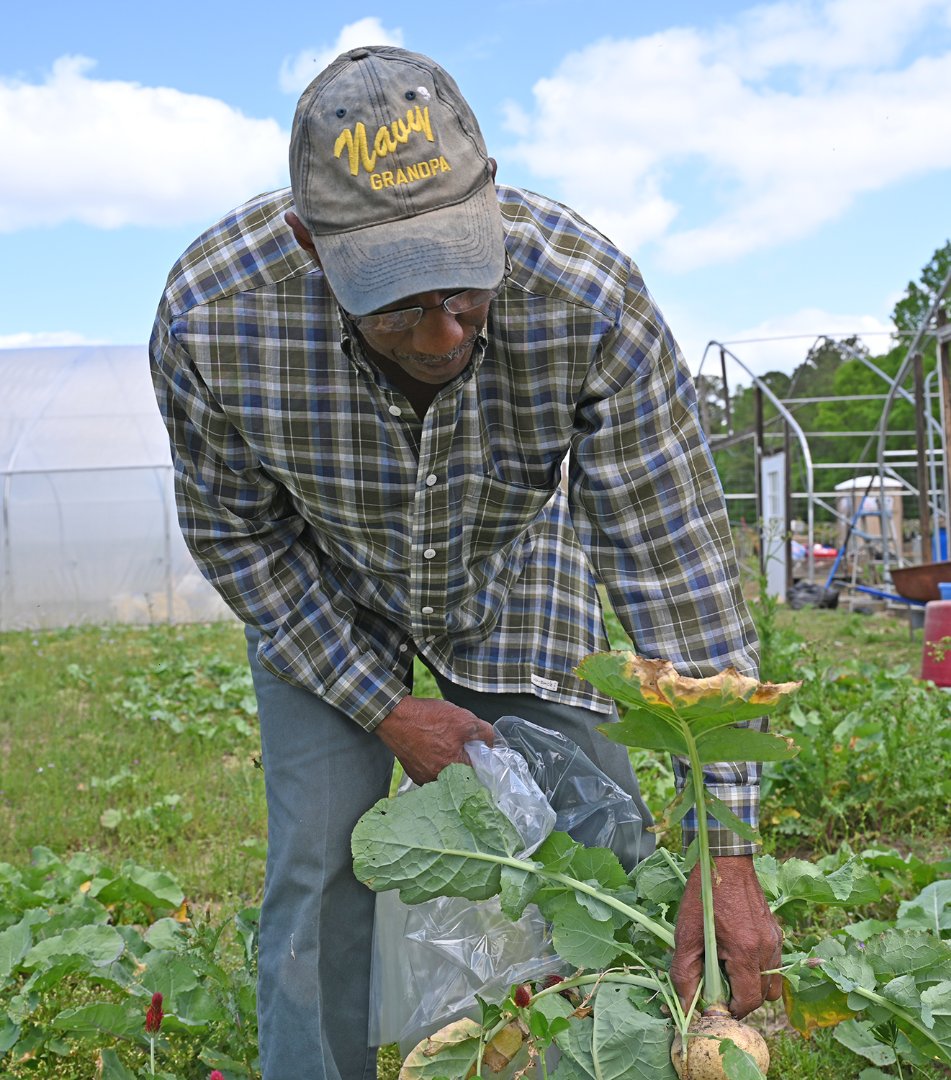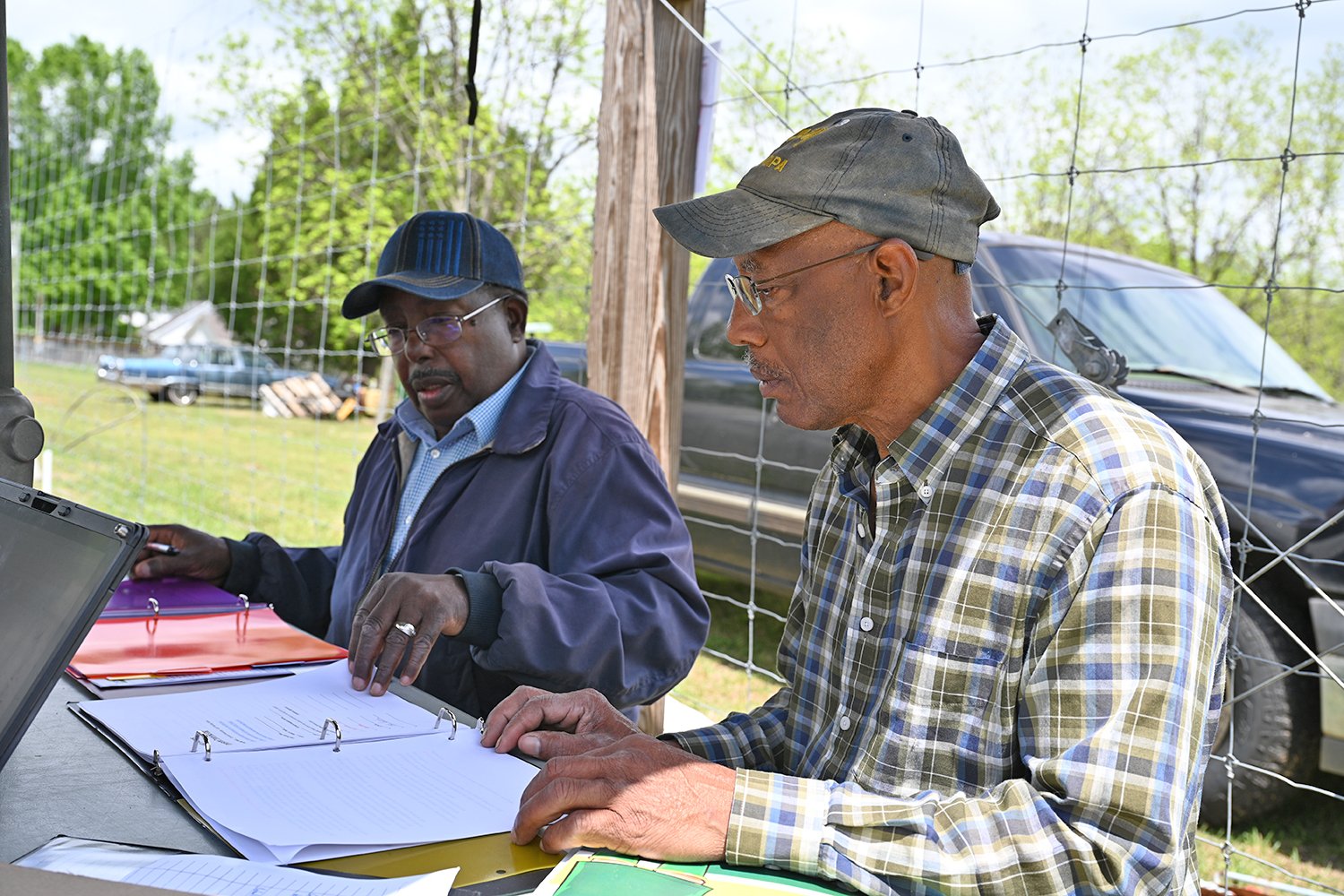Fort Valley State University’s (FVSU) Cooperative Extension Program is providing socially disadvantaged farmers opportunities to have their produce approved for sales.
This is made possible from a grant secured from the U.S. Department of Agriculture’s (USDA) Office of Partnerships and Public Engagement (OPPE) to help farmers pay fees for Good Agricultural Practices (GAP) audits.
GAP audits are used to ensure that farmers selling their products are properly using sanitary procedures. This includes verifying that fruits and vegetables are produced, packed, picked and stored in a manner that minimizes the development of hazardous microbes which cause food borne illnesses.
Robert Taylor, owner of Tilford Farms in Warner Robins, Georgia, is one of FVSU’s small farmers participating in the GAP audits sponsored by Cooperative Extension. On his 7 acre farm near Perry, Georgia, Taylor grows various greens that include collards and kale as well as onions.
“Through Fort Valley State, we’ve been doing some training, and they had some traceability programs we participated in while there.” Taylor said. He explained that a traceability program is when produce is put on the market and if someone should fall ill from consuming the product, that product can be traced back to its source.

The Houston County farmer said that he sought GAP certification so he could furnish produce to the local USDA Women, Infants and Children (WIC) special supplemental nutrition program. “They are looking for suppliers for their program which is open to small farmers,” Taylor said.
Willie Musselwhite, an inspector for the Georgia Federal State Inspection Service, conducted the GAP audit at Taylor’s farm. “What we come and do is to make sure the farmer has all of his food safety practices in line,” Musselwhite said. The 25-year veteran inspector said that most farmers are following proper procedures, but some run into problems when they fail to document their actions.
John E. Simmons serves as a GAP consultant for FVSU Cooperative Extension. His main duties include conducting workshops and speaking to farmers on what they need to become GAP certified. He also assists farmers in producing food safety manuals and acquiring and maintaining documentation needed to achieve GAP certification. Once the manual and documents are finalized, he helps farmers secure an inspector to conduct a GAP certification audit on their property and ensure they are following GAP procedures.
“Once they (farmers) get GAP certified, I encourage them not only to sell their products to the farmers markets and street vendors, but also sell to any government entities such as nursing homes, hospitals and school systems. This will open-up the markets for them,” Simmons said.
The GAP consultant also explained why it is important for farmers to become GAP certified.
“Most farmers in the past have always planted produce in their fields hoping that they can sell it during the year. By getting GAP certified, you can now pre-sell your goods. That means if I’m working with a hospital that serves food or any restaurants, I can go to them and talk about having the vegetables that they’ll need. They can now plant squash, okra or any leafy greens and have them ready in advance,” Simmons said.
Taylor said he’s been working with Fort Valley State since 2014, and it has been a great help in obtaining additional training. “People should take advantage of the programs Fort Valley has to offer,” he said.
Furthermore, the OPPE funding has allowed FVSU’s Cooperative Extension Program to assist five farmers in achieving GAP certification with another 10 waiting to participate in the process.
For more information about how to apply for GAP certification through FVSU’s Cooperative Extension Program, contact Joy Moten-Thomas, assistant administrator for community development at (478) 825-6954 or e-mail thomasb@fvsu.edu.

